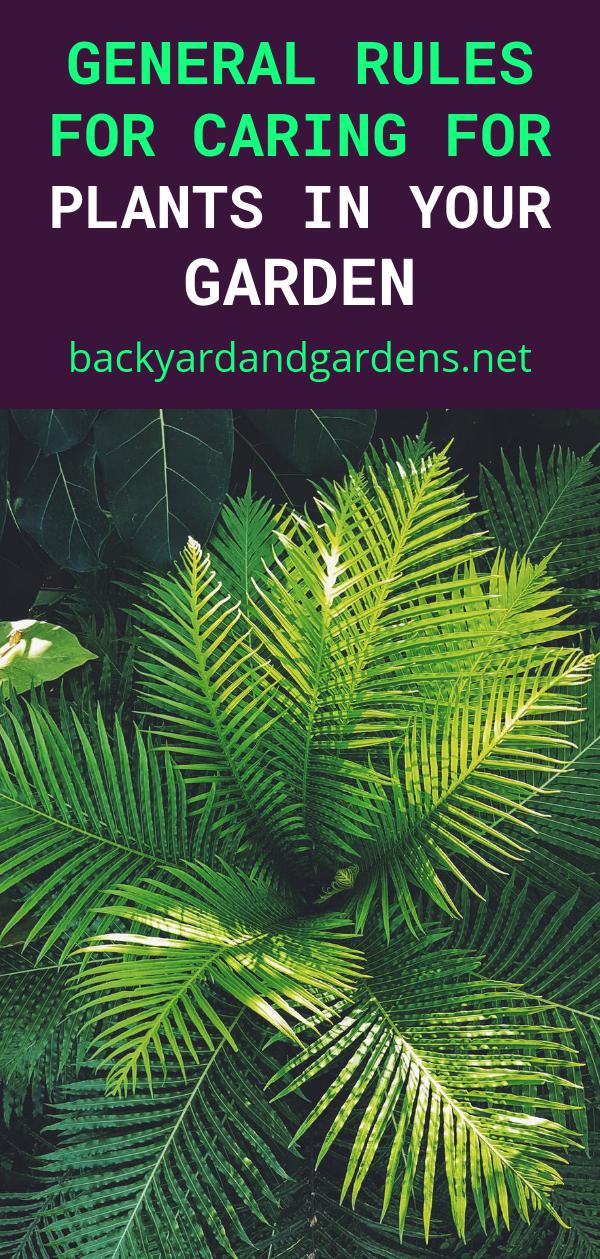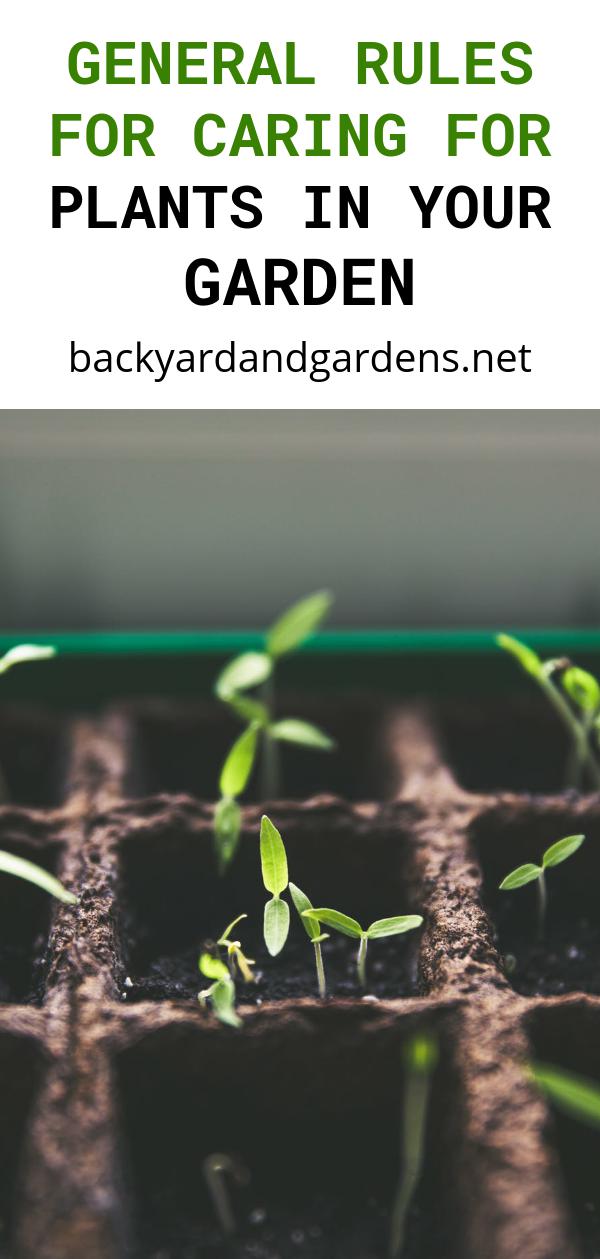General Rules for Caring for Plants in Your Garden
Most people consider garden care to be an afterthought, especially in comparison to the many things they do in their home. Yet this is a vital aspect of home maintenance that needs to be addressed, as it will determine how healthy your plants are and whether you are able to live there. While basic care of plants should be given for the first few years, you should also make sure that you have regular visits to the garden center in order to keep your plants healthy and happy.
Here are some general rules for caring for plants in your garden. You will need to take care of these in the first few years, especially if you are planning on having a large garden in the future. The first thing you need to know is how the water needs to be treated, both chemically and biologically.

Chemically: This refers to any chemicals that you might use to help the plant. Examples of this would be pesticides and herbicides.
Biological: These include things like insecticides and fungicides. This is to kill off pesky insects that might harm your plants.
It is important to note that some of these chemicals can be quite harmful to humans, so it is important to keep your plants away from them if possible. If this is not possible, it is probably best to stay away from them altogether. The same is true for things like fertilizers and other types of chemical additives. Make sure that you only give your plants what they need.
Water: All plants need at least two inches of water per week in order to survive. This can be tricky because you never know when you might need to water a plant, which means that you might need to constantly water them. You can help to control this by giving plants about four hours of extra water after they have received only one hour of water. Never leave your plants with a water source unattended, as they could drown easily. In order to limit the growth of algae, direct sunlight should be kept off of the plants. The UV rays from the sun can also do damage to plants by turning them orange. When your plants get too much sun, the leaves will eventually become blotchy and discolored. Pay close attention to this rule if you want to keep your plants healthy.
Pests: There are hundreds of pests that can be a problem in your garden. If you do not keep them under control, you will end up with a lot of unwanted plants. The most common pests are rodents and bugs. Keeping the mice out of your garden by killing them off is extremely important.
Insects are another way to control pests in your garden. You should give your plants a bug repellent once a month. The repellent is usually mixed into the water you used to water your plants.
De-clogging: Cleaning up your well-maintained lawn every few months is a good idea. As you can imagine, this takes up a lot of time and can be a bit expensive. However, it will ensure that your lawn is looking as clean as it did the day you first purchased it.

To help prevent the spread of harmful bacteria, you should try to use good mulch around your garden. This prevents many kinds of weeds and bacteria from thriving. The mulch keeps the ground nice and moist, which will keep things clean and prevent it from molding and mildewing.
A strong structure is also a must when it comes to home gardening. A strong roof that can protect your plants is necessary, but if you do not have one, there are plenty of simple structures that can make the job much easier. Woodland steel shingles are common options.
